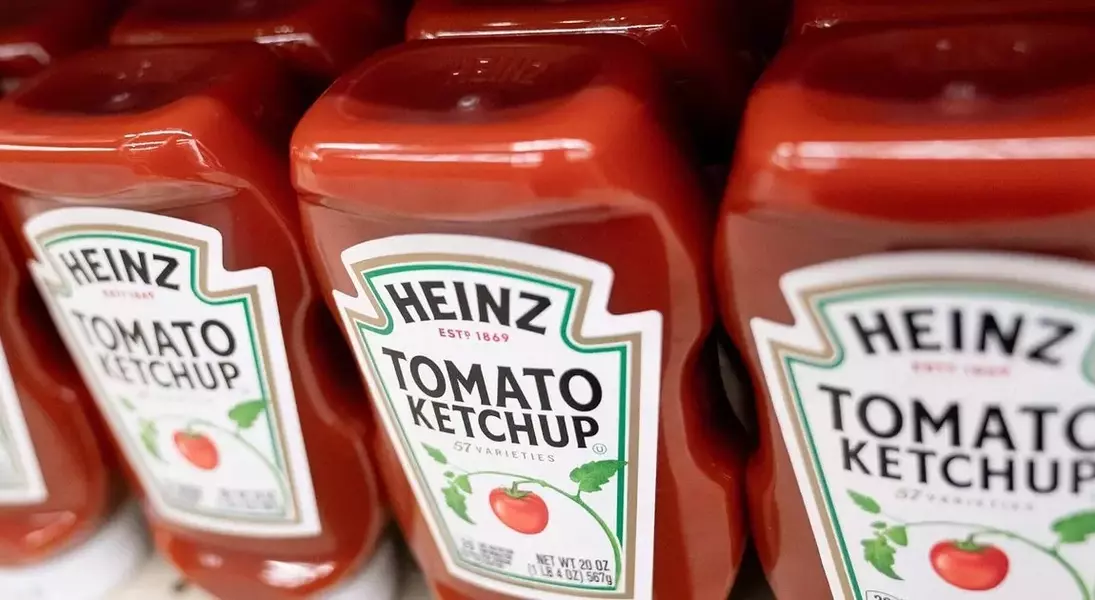In a groundbreaking announcement, Kraft Heinz has vowed to phase out all synthetic food dyes from its product lineup by 2027. This decision comes amidst growing consumer awareness and demand for healthier, more transparent food choices. The shift not only aligns with current market trends but also positions Kraft Heinz as a leader in the natural ingredients movement. Below, we explore the implications of this monumental decision and what it means for both consumers and the broader food industry.
Natural Evolution: Why Kraft Heinz is Leading the Charge in Ingredient Transparency
Kraft Heinz’s commitment to eliminating artificial dyes marks a significant step forward in the quest for cleaner, more wholesome foods. For decades, artificial colors have been staples in products ranging from children’s snacks to household pantry essentials. However, evolving science and shifting public perception have prompted companies like Kraft Heinz to reassess their formulations. By embracing natural alternatives, the corporation aims to meet consumer expectations while maintaining taste and quality standards.This transition reflects a broader trend within the food industry, where transparency and ingredient integrity are increasingly prioritized. As one of the largest global food manufacturers, Kraft Heinz’s decision carries weight, influencing competitors and setting new benchmarks for product development.The Science Behind Synthetic Dyes: A Closer Look at Their Use and Concerns
Synthetic dyes, first introduced in the mid-20th century, revolutionized food production by enhancing visual appeal and consistency. These additives, derived from petroleum-based compounds, offered vibrant hues that mimicked nature’s palette. Over time, however, concerns about potential health impacts began to surface. Studies have linked certain artificial dyes to hyperactivity in children, allergic reactions, and even carcinogenic properties when consumed in excessive amounts.Regulatory bodies such as the FDA have approved specific synthetic dyes for use in food, but consumer skepticism persists. Parents, in particular, have voiced strong objections to feeding their families artificially colored products. In response, Kraft Heinz is taking proactive measures to address these concerns, ensuring that future generations can enjoy familiar favorites without compromising safety.Moreover, the environmental impact of synthetic dye production cannot be overlooked. Manufacturing processes often involve harmful chemicals and energy-intensive methods, contributing to pollution and resource depletion. Transitioning to natural colorants not only benefits human health but also supports sustainable practices that align with modern ecological values.Nature’s Palette: Exploring the Benefits of Plant-Based Colorants
Plant-based colorants offer a compelling alternative to synthetic dyes, harnessing the power of fruits, vegetables, and spices to create visually appealing products. Beetroot extract, turmeric, spirulina, and annatto are just a few examples of natural sources used to achieve vibrant shades. Unlike their artificial counterparts, these ingredients boast additional nutritional benefits, making them an attractive option for health-conscious consumers.Incorporating plant-based colorants presents challenges, however. Stability, shelf life, and cost-effectiveness must all be carefully considered during formulation. Despite these hurdles, advancements in technology and research continue to improve the viability of natural solutions. Kraft Heinz’s investment in this area underscores its dedication to innovation and long-term sustainability.Furthermore, the adoption of natural colorants aligns with cultural shifts toward holistic living. Consumers increasingly seek products that reflect their personal values, whether related to health, ethics, or environmental stewardship. By prioritizing transparency and authenticity, Kraft Heinz reinforces its brand identity as a trusted provider of quality foods.Consumer Sentiment and Market Dynamics: Driving Forces Behind the Change
Public opinion plays a crucial role in shaping corporate decisions regarding product composition. Recent surveys indicate that over 70% of consumers actively read ingredient labels before purchasing groceries. This heightened awareness stems from increased access to information through digital platforms and media coverage. As a result, brands face mounting pressure to adapt to changing preferences or risk losing market share.Kraft Heinz recognizes the importance of staying attuned to customer needs. Its decision to eliminate synthetic dyes demonstrates a willingness to evolve alongside its audience. Moreover, the company acknowledges the economic advantages of aligning with consumer priorities. Products marketed as “natural” or “free-from” tend to command premium pricing, offering potential revenue growth opportunities.The competitive landscape further incentivizes bold moves like Kraft Heinz’s. Rivals who fail to innovate risk being overshadowed by those willing to embrace progressive strategies. Thus, the elimination of artificial dyes represents not only a moral imperative but also a savvy business decision.Global Implications: Setting Standards for the Future of Food Production
Kraft Heinz’s initiative extends beyond national borders, impacting international markets and supply chains. As a multinational corporation, its actions set precedents that smaller players may feel compelled to follow. This ripple effect could accelerate the adoption of natural colorants worldwide, fostering greater uniformity in regulatory standards and manufacturing practices.Additionally, the move highlights the interconnectedness of global economies. Suppliers of raw materials, such as farmers cultivating beetroot or turmeric, stand to benefit from increased demand for natural ingredients. Conversely, producers reliant on synthetic dye exports may need to pivot their operations to remain relevant.Looking ahead, the success of Kraft Heinz’s endeavor will likely influence other industries grappling with similar dilemmas. From cosmetics to textiles, sectors utilizing synthetic dyes face increasing scrutiny and calls for reform. Kraft Heinz’s leadership in this domain positions it as a pioneer, inspiring others to rethink conventional approaches and prioritize consumer well-being.
